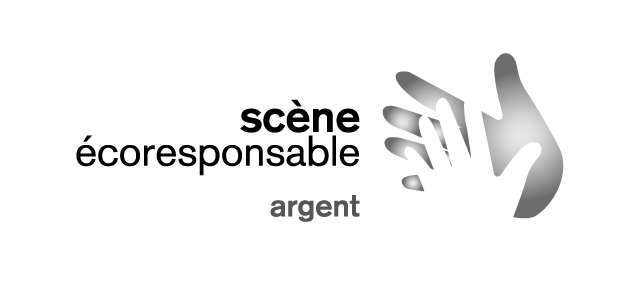National Day for Truth and Reconciliation

On this September 30, marking National Day for Truth and Reconciliation, Théâtre la Seizième wishes to honor the memory of the missing children and the survivors of residential schools, as well as their families and communities. We express our support for the First Nations, Métis, and Inuit on this territory known as Canada.
National Day for Truth and Reconciliation aims to honor the missing children and survivors of residential schools, as well as their families and communities. The week leading up to September 30 is also an opportunity to listen to and learn from Indigenous communities. Following the documentary show Koulounisation by Salim Djaferi, a powerful quest into the language of colonization, la Seizième aims to encourage learning more about languages, particularly Indigenous ones, and their space for expression.
Our province is one of the biggest language hotspot in the world, hosting a significant number of endangered languages within a relatively small area.
Between British Columbia and northern Washington State, there are 34 distinct languages and 7 language families. These figures represent 60% of all Indigenous languages in Canada! Due to the linguicide caused by colonial policies, there are currently just under 5,000 people who speak these languages fluently in our province (source: The Institute for Endangered Languages: Living Tongues for Endangered Languages).
Powerful vectors of culture and expression, these languages are imbued with remarkable richness and uniqueness. Some of them have as many as 42 consonants. Many others have developed by directly integrating the specificities and conditions of their territory. For example, instead of using north, south, east, and west for navigation, one might say “toward the sea” or “in the woods” to find their way. Because homes were built to face the sea, there is a specific word in Kwak’wala, “atli,” which refers to both “the back of the house” and the direction “toward the forest.”
A fundamental element of many of the performances we present, languages are a crucial issue in British Columbia, especially for First Nations communities. We encourage you to check the resources below, compiled with the help of Diane Campeau, former director of Indigenous education at the Francophone School Board:
- Canada’s Commission for truth and reconciliation: http://trc.ca/assets/pdf/Calls_to_Action_French.pdf
- The helpline for individuals affected by intergenerational trauma from residential schools: 1 866 925-4419. A support website is also available: https://www.sac-isc.gc.ca/fra/1581971225188/1581971250953
- The Atlas of Indigenous Peoples of Canada, to learn about Indigenous peoples in Canada: https://atlasdespeuplesautochtonesducanada.ca
- To learn about and hear Indigenous languages: https://www.firstvoices.com/
- Indigenous friendship centers, to build bridges: https://bcaafc.com/
- Vancouver’s friendship center: https://vafcs.org/
- Donate to the Indian Residential School Survivors Society: https://www.irsss.ca/
- Further resources are available here.
September 30 is also Orange Shirt Day, a day of commemoration organized by Indigenous communities. Established in 2013 by Phyllis Webstad, a member of the Stswecem’c Xgat’tem First Nation and a residential school survivor, this day aims to raise awareness of the intergenerational impacts of residential schools on individuals, families, and communities. The orange shirt symbolizes the loss of culture, freedom, and self-esteem experienced by Indigenous children for many generations, carrying the message that “every child matters.” All Canadians are encouraged to wear orange in tribute. To learn more, please consult the resources offered by the Vancouver Public Library (VPL): https://www.vpl.ca/program/orange-shirt-day-national-day-truth-and-reconciliation-resources-young-people
We are fortunate to live, create and gather on the traditional, ancestral, and stolen lands of the xʷməθkʷəy̓əm (Musqueam), Sḵwx̱wú7mesh Úxwumixw (Squamish) and səl̓ilw̓ ətaʔɬ (Tsleil-Waututh) First Nations.
